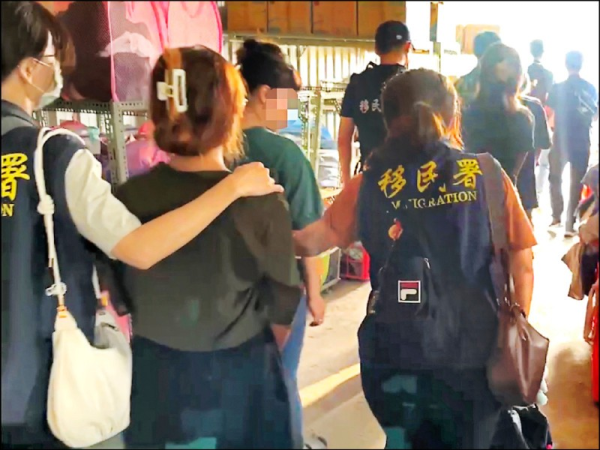
Taiwan is home to over 800,000 migrant workers, playing a crucial role in the country's labor market. However, the number of runaway migrant workers continues to rise, surpassing 90,000 as of late last year. Investigations reveal that many migrant workers abscond due to excessive brokerage fees, difficulties in changing employers, language barriers, and poor agency management, leaving them with no choice but to go undocumented. Experts suggest that the government should strengthen negotiations with migrant-sending countries and crack down on illegal job brokers.
Runaway Migrant Worker Numbers Doubling Since 2020
The latest statistics show that in November 2024 alone, 2,338 migrant workers went missing, bringing the cumulative runaway rate for the first 11 months of 2024 to 2.91%. While this is nearly half of the 5.96% peak recorded in 2022 during the pandemic, the total number of missing migrant workers has more than doubled from 48,000 in early 2020 to over 90,000 today.
Among the 90,269 runaway cases as of November 2024, the highest number comes from Vietnam, with 57,423 cases (63.6%), representing 20% of the total Vietnamese migrant worker population in Taiwan (281,000 people). Indonesia follows with 28,283 cases (31.3%).
Government Response and Policy Adjustments
The Ministry of Labor (MOL) emphasized that runaway cases have been declining for two consecutive years post-pandemic, with the incidence rate dropping from 5.96% in 2022 to 4.20% in 2023, and further to 2.91% by November 2024. The ministry pledged to continue working with the National Immigration Agency to strengthen enforcement efforts, speed up deportations, and implement preventive measures to curb the issue.
Understanding Migrant Worker Wages
National Taiwan University’s Institute of National Development associate professor Hsin Ping-Lung outlined the three main categories of migrant workers:
- Industrial workers – Receive the statutory minimum wage and are eligible for overtime pay, earning approximately NT$30,000+ per month.
- Institutional caregivers – Also follow the minimum wage standard.
- Household caregivers – Not covered under the Labor Standards Act, resulting in significantly lower wages.
Why Migrant Workers Run Away: A Deeper Look
To better understand why migrant workers choose to escape and work illegally, Taiwan’s Control Yuan conducted an investigation and released a 2023 report identifying 10 key issues. The report highlighted that runaways are often a consequence of poor wages, harsh working conditions, and ineffective channels for seeking help—all of which stem from labor shortages and regulatory gaps.
Among the primary reasons for runaway cases is the exorbitant brokerage fee system, particularly affecting Vietnamese workers in the manufacturing sector. These workers pay fees ranging from US$4,500 to over US$7,000, far exceeding the legal limits set by the Vietnamese government. Many borrow money to cover these costs, making debt repayment their top priority. When their actual earnings fall short of expectations, going undocumented to seek higher-paying illegal jobs becomes an attractive option. Some workers believe that by evading authorities and working illegally for 6 to 10 months, they can fully repay their debts.
Another major factor is Taiwan’s restrictive employer transfer system. Migrant workers cannot easily change jobs, even if they face unfair labor conditions, misleading job descriptions, or abusive employers. Many who turn to their brokers for help find their pleas ignored, leaving them no choice but to escape. This issue is particularly severe for household caregivers, who not only receive sub-minimum wages but also work year-round without rest, facing overwhelming caregiving responsibilities.
Experts Call for Systemic Reforms
Professor Hsin Ping-Lung stressed that the causes of migrant worker runaways are complex and not solely due to wages. He also noted that household caregivers serve as a pillar of Taiwan’s social welfare system, with many employers from low-income families who cannot afford wage increases.
He urged the government to:
- Enforce legal responsibilities for runaway workers.
- Crack down on illegal job brokers who encourage undocumented labor.
- Differentiate policies for industrial and caregiving migrant workers under the Employment Service Act, as their motivations and employer needs differ significantly.
The ongoing rise in runaway migrant workers reflects systemic flaws in Taiwan’s labor policies. Experts emphasize that without tackling the root causes—excessive fees, lack of job mobility, and unfair labor conditions—the problem will persist despite stricter enforcement.
[LTN / Reporter Xu Ziling, Li Lianghui / Special report ] 2025/03/03 05:30
[Photo by LTN]
